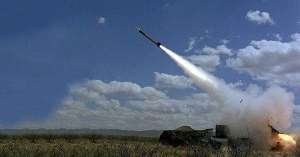I promised (in this column, months ago) that I would show my reasons to be proud of being Romanian.
I will do it now.
Academician Constantin Bălăceanu-Stolnici once said, on TV, that some recent theories claim that cultural inheritance is passed down genetically.
We had learned, starting from the blank slate postulated by John Locke, that our after birth experiences are poured into the our genetic Petri dish where they are processed.
I haven"t had time to examine the new theories, so I am wary of rejecting them (especially since one theory claims that elephants receive genetically the map of the water sources).
It is certain however that information gets passed down from one generation to the next, through a social loop, that makes us inherit not just knowledge, but mentalities, attitudes, interpretations of the world, beliefs, in other words anything that means life in the spiritual plan.
If not genetically, at least by nurture, we are the spiritual inheritors of the Dacian spirit (hidden somewhere deep, which sporadically comes out).
We were taught in school that our distinctive trait is resignation before fatality, because this is the interpretation that our thinkers gave to Romania"s notorious "Mioriţa" poem ("The lamb"), which is considered as the best expression of our spirit.
Telling our children that they are part of a people which is defined by resignation, harms them all.
Remember the feeling in your heart when the school teacher explained how the young shepherd who is the main character of the poem wants to get his affairs in order before being killed.
That doesn"t describe us.
Not at all.
"The thinkers" were mistaken.
All of the children are interested in the outcome of the battle of the shepherd against the other two who wanted to kill him to steal his sheep.
But the poem doesn"t tell us how it all ends.
Why?
So, he has enough time to list his wishes ("And by my head lay down /A flute made from beech,/That sings so lovingly!/A flute made from bone,/That sings so longingly!", but they cut corners and neglect to tell us whether or not "Smacked on the head with a wooden bat,/The shepherd fell down and was left there like a doormat!".
I"m sorry, I"m not a poet.
How can those thinkers predict the death of the shepherd so accurately?
Are they fortune tellers?
I for one think their education got the best of them and they neglected to check their genetic inheritance (if it exists) or to compare whether their interpretation matches the Romanians" shared mentality.
The most logical interpretation of the reason why the "Mioriţa" ballad does not recount the fight between the shepherds and the ending is because it is not meant to be a story.
Unlike what we are taught in school, "Mioriţa " is not epic.
"Mioriţa" does not discuss incidents, like the Illiad or the Odissey.
It presents a ritual that precedes a confrontation.
This is its goal: to let others know that when one goes to battle, you shouldn"t worry about anything or anyone. Get your world in order, to make sure your death does not leave matters unattended.
Act as if you were as good as dead.
It"s the only way to be brave and give your best.
It is the only way to increase your odds of success, when you are heavily outmatched, (the strategy for when one"s strength is greater than that of the opponent would probably be different).
It"s only when interpreted like this that the absence of the fight and of the ending makes sense.
Because that is not what the poem is about.
And that poem has got nothing to do with resignation.
If "Mioriţa" is what defines us, then, in the deep recesses of our psyche, our courage is unmatched in Europe.
"I"ll die with my hands at your throat!" is one fierce Romanian threat, which can be heard in all the layers of our society.
The one who gets this threat usually gets intimidated. Because he has no doubt that the other one will make good on their threat. That is of course if the two opponents are both Romanians.
Were we born in the wrong place?
I could say we did, for lots of reasons.
But I for one still wouldn"t like living anywhere else.
Among the hundreds of versions of "Mioriţa" which are present among the various Romanian groups living outside Romania"s current borders, including Aromanians, Megleno-Romanians and Istro-Romanians, there are some that recount the revival of the Romanian shepherd by his mother, with the help of the little lamb:
\"The mother gathered his bones / And she put them all together, / And the lamb breathed down on him / And the shepherd came back to life".
The supporters of the theory that claims the shepherd was a defeatist, use these versions to support their statements.
But they are ignoring the text of the ballad itself: the shepherd says "And if I were to die ...",.
He does consider the possibility of death, but does not view it as certain.
The poem doesn"t say how he plans to save his life, so it doesn"t seem to make much sense.
That is, unless we look at it as describing a war preparation ritual.
Once we look at it this way, his words take on a different meaning: the reasons for his hope permeate the entire poem.
NOTA
Several of the arguments used in this article have already been published in "BURSA", many years ago. I thought it was appropriate to bring them back, noticing the way Romanians tend to attack their own dignity.
Apart from the things mentioned above, there is (at least) one more reason to have a national pride - we are the promoters of the highest civilization values in Europe and all over the world.
But this is to be discussed in another episode (please note that I keep my word).























































